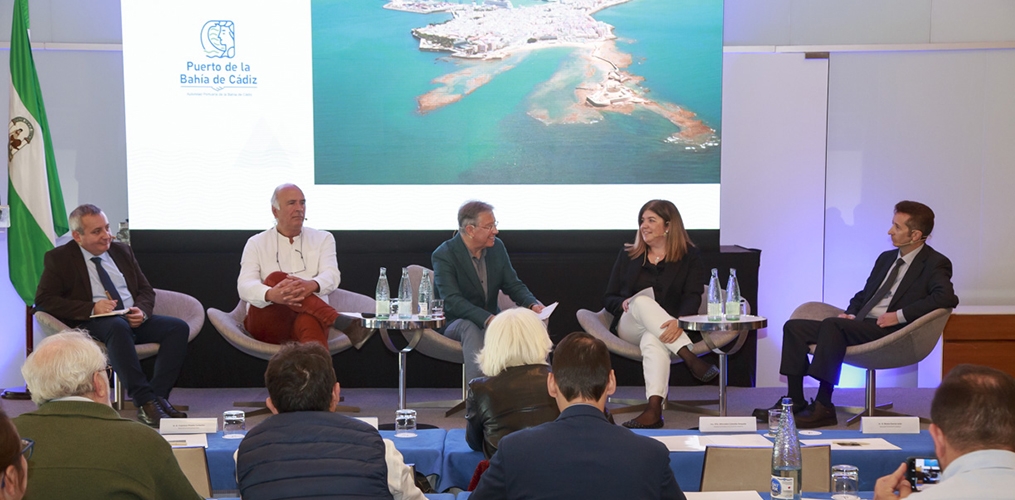
The Port Authority of the Bay of Cádiz has kickstarted its blue innovation strategy with the Conference ‘Innovation at the service of port competitiveness’, featuring the participation of local, national and international agents in the field of innovation, research and entrepreneurship. Among these were LifeWatch ERIC, Puertos del Estado (Spanish government), the University of Cádiz, Telefónica, Archangelus Systems and Total Maritime Solutions.
President of the Port Authority, Teófila Martínez, who in turn chairs the RETE Association for Collaboration Between Ports and Cities, explained “the need to intensify innovation efforts in order to assume and assimilate the technological revolution and the impact it has on ports. Our goal is to create a culture of innovation and take a proactive role in promoting sustainable development which involves everyone”. José Llorca, responsible for Innovation at Puertos del Estado and the government’s Ports 4.0 Fund, then highlighted the role of the LifeWatch ERIC digital infrastructure as a promoter of change.
LifeWatch ERIC CTO, Juan Miguel González-Aranda, explained how LifeBlock technology, developed by the LifeWatch ERIC ICT-Core, can help integrate biodiversity protection into port development. One way is through ‘smart contracts’ for the port authority to manage the use of natural resources and guarantee compliance with environmental regulations. For example, for the discharge of wastewater, or regulating the use of goods transit areas, or blue carbon tokenisation, or sustainable fishing and smart market management. To this end, all the stakeholders in the port ecosystem would be involved, to generate trust and promote participatory governance in decisions.
Another path that LifeWatch ERIC proposes is the development of a digital twin for environmental impact and monitoring of the marine or coastal ecosystems affected by port activity, in synergy with similar initiatives in Europe such as the BioDT project, in which LifeWatch ERIC is co-responsible for international deployment by creating IaaS, PaaS and SaaS models, through the provision of user-friendly interfaces.
For the Port in the Bay of Cádiz, the following key actions have been identified in order to monitor and control the spread of invasive alien species; the protection of seabed and reef habitats, to help assess environmental quality and ecosystem services in ports, including an ecological assessment of operations such as dredging, and the validation of preventive and corrective mechanisms to improve the quality of water bodies.
LifeWatch ERIC offers its collaboration for the port’s blue innovation through financial instruments with which it is working, such as within the Horizon Europe programme’s Climate, Energy and Mobility Cluster, on ‘Climate resilient and safe maritime ports’; or the ‘Demonstration of DC powered data centres, buildings, industries and ports’. Within the Food, Bioeconomy, Natural Resources, Agriculture and Environment Cluster is the ‘Demonstration of marine and coastal infrastructures as hybrid blue-grey Nature-based Solutions’, and ‘Invasive alien species’. Finally, within Missions – Adaptation to Climate Change, is ‘Testing and demonstrating transformative solutions to protect critical infrastructure from climate change, mainstreaming nature-based solutions’.